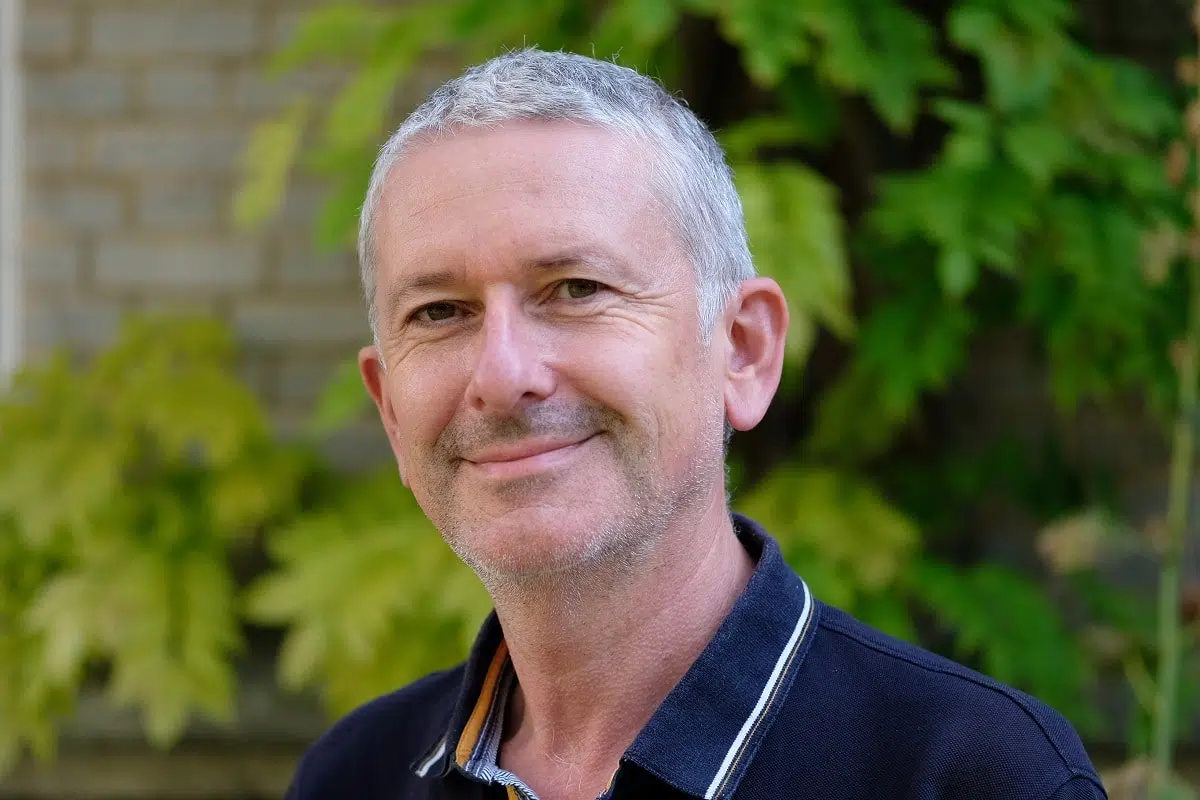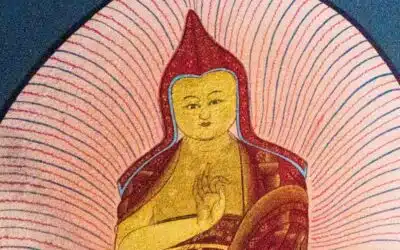I do therefore I am

Written By Damien Brohon
Blog | Reflections on life | What about me?
In “I do therefore I am”, Damien observes how the Dzogchen view frees us from the illusion of a self fabricated by action.
I do, therefore i am
Because that
It’s really you
Yes, yes that’s really you
Pooh !
It’s really you No, no, no, that, that!
It’s really you. You can feel it, that, that!
It feels, it feels, it feels that it’s you. [1]
What is really you? What is really me? What defines us? What determines us?
Perhaps a way of being determined by our actions. Would our most ordinary actions betray our identity? How we walk, talk, or lift our fork to our mouth seems to speak of who we are. I like to make my tea the English way [2]. I have a favorite armchair at home where I always sit with one foot on the floor and the other leg folded up onthe seat. I’m known for writing unnecessarily complicated articles, etc.
It’s always easier to notice this in others than in ourselves : a few days ago I saw a person again whom I hadn’t seen for ten years and I recognized her less by her physical appearance than by a certain way of standing slightly stooped, a shy and somewhat ironic smile, slow breathing; in short, a certain way of being.
“For the Dzogchen tradition, it is vain to want to change this illusory self. “
In action we have the impression of “feeling” the self in a particular mode. The more intense the stakes, the more solid the self seems. For example, when I assemble a piece of furniture sold in individual parts with instructions to be followed scrupulously, I feel that it is
me
who is building
my
piece of furniture for
my
living room. If I succeed in following the instructions, I have the satisfaction of being a kind of good student of Nordic prefabricated construction, whereas if I fail and have to start all over again from the point where I made a mistake, the figure of a “ big idiot ” is immediately apparent. And that’s just a furniture set-up … If the stakes are higher, such as in the case of a medical emergency or intense conflict, the self is likely to be experienced even more powerfully.
When it’s attachment, then the world is full of exciting possibilities that I want to take advantage of: “It would be great if I could have this 12 nut to attach my new shelf. Yay! Let’s go to the store! » When I am prone to anger, the world is irritating as hell and I need to get even for the insults I have been subjected to : “A customer bought the last 12 nut, just in front of me! The bastard! “. When it’s ignorance, the world is blurred and we no longer really know who we are: “But what am I doing in a hardware store??? “. All our experiences are transformed by habitual tendencies into objects with well-defined qualities : object-me, object-other, object-work, object-what-is-bothering-me and so on. All our actions aim to transform these objects through action by using them, trying to move them or transform them, etc. We are more or less lucid about this creation of self through action, through gesture. If so, perhaps we turn to yoga or qigong. These disciplines offer a conscious gesture likely to soothe, harmonize and energize the connection between body and mind. In this way, we might attain a more clairvoyant, serene self, in a word : an awaken self. How do we engage in these practices? By putting them into practice of course: there is something to be done there. And to do well. So, we try to maintain the correct posture, that is, as the instructor tells us, to breathe as in the manual and to sequence the movements as the tradition has dictated for millennia. And then there are the eyes! Should they be open or closed? Half open or rather half closed? What if we wear glasses? Should we keep them or not? What if we’re blind? I see myself again during my first meditation sessions applying myself with great intensity to do the famous letting go! Trying to force it to happen once and for all thanks to the energy of my action! This in order to finally become a “better version of myself” or “an accomplished spiritual practitioner”.
So what do we observe? That again we make to be. Which means that in order to be, we have to do. In short, that we project the self through action. This self or ego is therefore devoid of substance in and by itself. It needs action to exist. Hence the intensity of our efforts in this direction and hence also the vanity of them: these constructions can only be ephemeral and therefore illusory. What we call “me” is perceived as an autonomous and durable entity, but is in fact only an identification produced by action, both intense and unconscious, but and lasting only a few moments. The making of the self is a sysiphean work – always beginning anew. For the Dzogchen tradition, it is vain to want to change this illusory self. A tantra enlightens us thus: “(…) if one acts in any way to obtain the true meaning of the scriptures, it becomes an obstacle. He who conceptualizes real nature will never realize it” [3] . This tradition invites us to relax, to stop even “spiritual” busyness and to develop direct vision. When anger, jealousy, greed, addiction, stupidity, or malice want to launch the “self” that serves as their reference in an action, we can look directly at the reality of that movement.
What is happening in our mind, our emotions and our body? Look at thoughts, mental images, physical sensations. Look at the story that is being told and where “I” is supposed to be the main character. Is it as real as our inner voice says it is? If it’s real, is it real forever or just now? Are the thoughts, associated images and feelings permanent or transient?, etc. This clear, lucid and non-judgmental view that comes from meditation is not another fabrication, but direct access to what we are. This nature is much larger than what we believe it to be and requires no action, no gesture, to create it. It’s already there – basically. It is a great perfection that resides – effortlessly – at the heart of every moment.
More Posts
Being Your Own Master
Relationship with a master requires discernment. “Being your own master” offers insights into understanding devotion and avoiding pitfalls.
Phenomena
"Phenomena" is the second entry in a new category designed to improve understanding of essential Dzogchen words and concepts.
The Story of the First Masters: Manjushrimitra
We continue the Stories of the First Dzogchen Masters with Manjushrimitra, who structured the verses of Dzogchen into three series.





